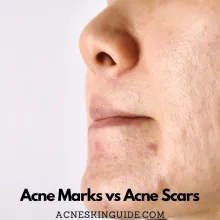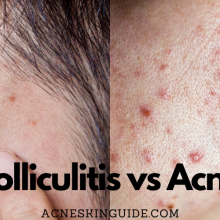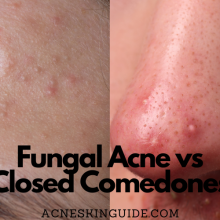Is Acne Genetic? | Acne Skin Guide
Acne vulgaris is a prevalent inflammatory skin condition with complex, multifactorial causes, including a significant genetic component. Numerous studies demonstrate a strong hereditary link, with individuals having first-degree relatives with acne at higher risk themselves. Twin studies reinforce the genetic basis, showing higher concordance rates among identical twins. Certain ethnic/racial groups also exhibit varied acne prevalence, suggesting genetic influences. Researchers have identified specific genes associated with increased acne risk, including those involved in inflammation, hormonal regulation, and sebum production.
However, acne involves polygenic inheritance and genetic heterogeneity. Epigenetic factors and gene-environment interactions further contribute to acne development and severity. Understanding acne genetics has implications for personalized medicine, risk assessment, and potential future gene-editing treatments. While promising, ethical considerations surrounding genetic testing, accessibility, and using gene-editing for cosmetic purposes require careful navigation. Continued acne genomics research, combined with a holistic approach addressing genetic and environmental factors, could improve acne management.
#1 Recommended Acne Treatment | #2 Recommended Acne Treatment |
 |  |

Is Acne Genetic? Uncovering the Hereditary Influences on This Common Skin Condition
Acne vulgaris, often simply referred to as acne, is a chronic inflammatory skin condition that affects millions of individuals worldwide. While it is most commonly associated with adolescence, acne can persist well into adulthood, causing both physical and psychological distress. Despite its prevalence, the underlying causes of acne are complex and multifactorial, with genetics playing a pivotal role.
The Genetic Link in Acne Development
Numerous studies have provided compelling evidence that acne has a strong genetic component. Individuals with a first-degree relative (parent, sibling, or child) who has experienced acne have a significantly higher risk of developing the condition themselves. This observation has been reinforced by twin studies, which have consistently demonstrated a higher concordance rate for acne among identical (monozygotic) twins compared to fraternal (dizygotic) twins.
The genetic basis of acne is further supported by the observation of ethnic and racial differences in its prevalence. For instance, certain populations with ancestral roots in specific geographic regions, such as those of East Asian and Native American descent, tend to have lower rates of acne compared to other ethnic groups. These variations suggest the involvement of genetic factors that may influence an individual’s susceptibility to developing acne.
Identifying Acne-Associated Genes
Advancements in genomic research have enabled scientists to identify specific genes and genetic variants associated with an increased risk of developing acne. Some of the key genes implicated in acne pathogenesis include:
- Inflammatory genes: Variations in genes involved in inflammatory pathways, such as the interleukin-1 alpha (IL-1α) gene, have been linked to increased inflammation and acne severity.
- Hormonal regulation genes: Genetic variants in genes like CYP17 and CYP21, which regulate the production and metabolism of hormones like androgens, can contribute to hormonal imbalances and increased sebum production, both of which are closely tied to acne development.
- Sebum production genes: Certain genetic variations can influence the activity of enzymes involved in sebum production, leading to excessive sebum secretion and clogged pores, which are prime conditions for acne formation.
It’s important to note that acne is a complex condition with genetic heterogeneity, meaning that multiple genes and their interactions contribute to its development. This is known as polygenic inheritance, and it underscores the intricate interplay of various genetic factors in determining an individual’s predisposition to acne.
Epigenetic Influences and Gene-Environment Interactions
While genetics plays a crucial role in acne susceptibility, it is not the sole determinant of the condition. Epigenetic factors, which influence gene expression without altering the DNA sequence, have also been implicated in acne pathogenesis. Environmental factors, such as diet, stress, hormonal fluctuations, and exposure to certain compounds, can interact with an individual’s genetic makeup, further contributing to the development and severity of acne.
The interplay between genetics and environmental factors, known as gene-environment interactions, highlights the multifactorial nature of acne. Addressing both genetic and environmental factors is crucial for effective acne management and treatment strategies.
Implications for Personalized Medicine and Future Treatments
Understanding the genetic basis of acne has significant implications for personalized medicine approaches. Genetic testing and risk assessment could help identify individuals at higher risk for developing acne, allowing for early intervention and tailored management strategies. This could include preventive measures, lifestyle modifications, and targeted therapies based on an individual’s genetic profile.
Moreover, advancements in gene editing techniques, such as CRISPR-Cas9, hold promise for developing novel treatments that target specific genetic variants associated with acne. While still in the early stages of research, these approaches could potentially revolutionize acne treatment by addressing the underlying genetic factors contributing to the condition.
Potential Downsides and Ethical Considerations
While the exploration of acne genetics holds great promise, it is important to acknowledge potential downsides and ethical considerations. One concern is the risk of genetic discrimination, where individuals with certain genetic variants associated with acne may face stigma or discrimination in areas such as employment or insurance coverage.
Additionally, the accessibility and affordability of genetic testing and personalized treatments may pose challenges, particularly in resource-limited settings. Ensuring equitable access to these advancements will be crucial to prevent further exacerbating existing health disparities.
Furthermore, the ethical implications of gene editing technologies for cosmetic purposes, such as treating acne, must be carefully examined and regulated to prevent misuse or unintended consequences.
Conclusion
The growing body of evidence highlights the significant role of genetics in an individual’s predisposition to developing acne. Understanding the genetic basis of acne, including hereditary patterns, specific gene variants, and their interactions with environmental factors, is essential for advancing personalized medicine approaches and developing more effective treatments.
However, it is crucial to recognize that acne is a multifactorial condition, and addressing both genetic and environmental factors is key to successful management. Additionally, the potential downsides and ethical considerations surrounding genetic testing, personalized treatments, and gene editing technologies must be carefully navigated.
Continued research in acne genomics, combined with a holistic approach that considers genetic, environmental, and psychosocial factors, holds promise for improving our understanding and management of this prevalent skin condition. By embracing the insights from genetics and personalized medicine, we can pave the way for more effective and tailored interventions, ultimately improving the quality of life for those affected by acne.
#1 Recommended Acne Treatment | #2 Recommended Acne Treatment |
 |  |
Summary and FAQs
Does having acne-prone parents guarantee that a child will develop acne?
No, having acne-prone parents does not guarantee that a child will develop acne. While there is a genetic component to acne, it is a complex condition influenced by multiple genes as well as environmental and lifestyle factors.
Having a family history of acne increases the risk of developing acne, but it is not a certainty. The inheritance pattern of acne is considered to be polygenic, which means that multiple genes interact with each other and with environmental factors to determine an individual’s predisposition to the condition.
Even if both parents have a history of acne, it is possible for their child to not develop acne or to have a milder form of the condition. Conversely, some individuals may develop acne without having a strong family history of the condition, likely due to the influence of other genetic or environmental factors.
It’s important to note that the severity and persistence of acne can also vary among family members, even if they share a genetic predisposition. Factors such as hormonal changes, stress levels, diet, and skincare routines can all play a role in the manifestation and severity of acne.
While a family history of acne should be considered as a risk factor, it is not a definitive predictor of whether an individual will develop the condition or not. Genetic testing and risk assessment tools are still in development and may provide more accurate predictions in the future, but as of now, having acne-prone parents does not guarantee that a child will develop acne.
Can lifestyle factors override genetic predisposition to acne?
Yes, lifestyle factors can potentially override or mitigate the effects of a genetic predisposition to acne to some extent.
While genetics play a significant role in determining an individual’s susceptibility to acne, lifestyle factors and environmental exposures can influence the expression and severity of the condition. Here’s how lifestyle factors can impact acne development:
- Diet: Certain dietary patterns, such as a diet high in refined carbohydrates, dairy products, and unhealthy fats, have been associated with an increased risk of acne. Adopting a balanced, nutrient-rich diet can help regulate hormonal levels, reduce inflammation, and improve overall skin health.
- Stress management: High levels of stress can trigger hormonal imbalances and inflammation, both of which can exacerbate acne. Practicing stress-reducing techniques like meditation, yoga, or exercise can help manage stress levels and potentially reduce the severity of acne.
- Sleep patterns: Adequate sleep is essential for overall health, including skin health. Lack of sleep can disrupt hormone levels and increase inflammation, contributing to acne flare-ups.
- Skincare routine: Proper skincare practices, such as gentle cleansing, avoiding excessive irritation, and using non-comedogenic (non-pore-clogging) products, can help prevent acne breakouts or minimize their severity.
- Avoiding triggers: Identifying and avoiding potential triggers like certain medications, cosmetic products, or environmental exposures that may worsen acne can help manage the condition.
It’s important to note that while lifestyle modifications can be beneficial, they may not completely override a strong genetic predisposition to acne. However, they can certainly help reduce the severity and frequency of breakouts, even in individuals with a genetic predisposition.
The key is to adopt a holistic approach that combines lifestyle changes with appropriate medical treatments, if necessary. By addressing both genetic and environmental factors, individuals can better manage their acne and potentially improve their overall skin health.
Are there specific genetic tests available to determine an individual’s risk for acne?
Currently, there are no widely available commercial genetic tests specifically designed to determine an individual’s risk for developing acne vulgaris.
While research has identified several genes and genetic variants associated with an increased risk of acne, such as those involved in inflammatory pathways, hormonal regulation, and sebum production, the genetic basis of acne is complex and involves multiple genes and their interactions.
Most of the genetic research on acne has been conducted in academic or research settings, and the findings have not yet been translated into commercially available genetic tests for clinical use. The development of such tests would require extensive validation and regulatory approval processes.
However, some companies and research laboratories may offer genetic testing services that could potentially provide information related to acne risk, but these tests are typically not specific to acne and may have limitations in their accuracy and interpretation.
It’s important to note that even if genetic testing for acne risk becomes available in the future, the results would likely need to be interpreted in the context of an individual’s overall genetic profile, family history, and environmental factors, as acne is a multifactorial condition.
Currently, the assessment of acne risk relies primarily on family history, physical examination, and evaluation of potential contributing factors, such as hormonal imbalances, dietary habits, and other lifestyle factors.
Ongoing research efforts in the field of acne genetics and the continued advancement of genetic testing technologies may eventually lead to the development of more accurate and reliable genetic tests for acne risk assessment. However, as of now, there are no widely available, clinically validated genetic tests specifically designed for this purpose.
Can acne genetics differ between males and females?
Yes, there is evidence to suggest that the genetic factors involved in acne development can differ between males and females.
Acne is a condition that is influenced by hormones, particularly androgens (male sex hormones), which play a crucial role in sebum production and the development of acne lesions. As males and females have different hormonal profiles and patterns, it is plausible that the genetic factors contributing to acne may also differ between the two sexes.
Several studies have identified gender-specific genetic associations with acne severity and risk. For example, certain genetic variants in the androgen receptor gene (AR) and the cytochrome P450 enzymes (CYP) involved in androgen metabolism have been linked to an increased risk of acne in males but not in females.
Additionally, genetic variations in pathways related to inflammation, sebum production, and hormonal regulation may have differential effects on acne development and progression in males and females due to their distinct hormonal environments.
It is also important to consider the potential influence of sex chromosomes (X and Y) on acne genetics. Genes located on these chromosomes may contribute to gender-specific differences in acne susceptibility and severity.
Furthermore, epigenetic factors, which regulate gene expression without altering the DNA sequence, may also play a role in the gender differences observed in acne. These epigenetic modifications can be influenced by hormonal changes and may differ between males and females.
While the exact mechanisms underlying the potential gender differences in acne genetics are not fully understood, ongoing research in this area could lead to a better understanding of the unique genetic factors involved in acne development for each sex. This knowledge could ultimately contribute to the development of more personalized and effective treatment strategies tailored to the specific needs of male and female patients with acne.
Can epigenetic factors be passed down from parents to offspring, influencing acne risk?
Yes, there is evidence suggesting that certain epigenetic factors can be passed down from parents to offspring, potentially influencing the risk and severity of acne in the offspring.
Epigenetics refers to changes in gene expression and regulation that do not involve alterations in the DNA sequence itself. These epigenetic modifications, such as DNA methylation and histone modifications, can be influenced by various environmental factors, including diet, stress, and exposure to certain chemicals.
While the inheritance of epigenetic modifications across generations is still an area of active research, several studies have demonstrated that some epigenetic changes can be transmitted from parents to their offspring, a phenomenon known as transgenerational epigenetic inheritance.
In the context of acne, several epigenetic mechanisms have been proposed to play a role in the development and progression of the condition. For example, epigenetic modifications can affect the expression of genes involved in hormonal regulation, inflammatory pathways, and sebum production, all of which are crucial factors in acne pathogenesis.
If these epigenetic modifications are present in the parents, they may potentially be passed down to their offspring, influencing the offspring’s risk of developing acne or the severity of the condition.
Additionally, maternal factors during pregnancy, such as diet, stress levels, and exposure to certain environmental factors, can alter epigenetic patterns in the developing fetus, potentially affecting the offspring’s predisposition to acne later in life.
It is important to note that the inheritance of epigenetic modifications is a complex process, and the extent to which specific epigenetic factors contribute to acne risk across generations is still being investigated. Environmental exposures and lifestyle factors throughout an individual’s lifespan can also modify epigenetic patterns, further influencing the risk and severity of acne.
While more research is needed to fully understand the role of epigenetic inheritance in acne, recognizing the potential for transgenerational epigenetic effects highlights the importance of considering both genetic and epigenetic factors in the assessment and management of this common skin condition.






